Bad Cats & Babysitters: Anthony Varallo on His Award-Winning New Story Collection, What Did You Do Today?
Now in the world!
Monthly and annual subscriptions to Bookish are 15% off through November 20. A preview of the most recent list of agents currently accepting queries can be accessed here. 📗
If you’re in the Charleston, SC area, Anthony Varallo’s book release party for What Did You Do Today? is tomorrow evening, November 15, 6 PM, at Buxton Books, 160 King Street. Email rsvp@buxtonbooks.com to reserve your spot!
This penultimate month of a year I suspect few of us want to repeat has delivered us book fiends a big basket of excellent new books. I’m skipping the celebrity memoirs and going right for the titles by authors who toiled over their own sentences one painstaking word at a time: Sigrid Nunez’s The Vulnerables, Lindsay Hunter’s Hot Springs Drive, Jeremy T. Wilson’s The Quail Who Wears the Shirt, and today’s featured book, What Did You Do Today?, by Anthony (Tony) Varallo, winner of the Katharine Anne Porter Prize in Short Fiction.
I’ve been a committed reader of Tony’s books since more than a decade ago when I read his first story collection, This Day in History, which received the John Simmons Short Fiction Award from the University of Iowa Press.
Each of Tony’s six books is immersive, addictive, fully alive. There strikes me as no greater reward for a reader than to be reminded the world offers us innumerable opportunities to engage our senses. Sometimes this can be harrowing, other times, sublime. When I read Tony’s stories, I want to go out and pet cats and eat cookies and write my own new stories.
I hope you’ll treat yourself to a copy (or ask your library to order one) of Tony’s new book, What Did You Do Today?—there are so many felicities beyond its cover (which New Yorker and NYTBR illustrator Andy Rementer designed).
And now…the interview with Tony Varallo:
Christine/Bookish: You have such a light comic touch but can also plumb the darkness without being heavy-handed. I’m thinking specifically of your title story (first published in The New Yorker’s “Daily Shouts” column), a very witty take on being confined to our homes and glued to our phones and computers during the pandemic, and of “First Everything,” one of the two longer stories in this book, which is both funny and sad. Have you ever written straight up comedy, e.g. sketches and skits, or done any stand-up?
AV: I’ve never done any stand-up (outside of teaching, I mean), and my acting experience is limited to one role in my high school’s senior play, where I could never figure out how to “act” unless I was saying a line. So, you know, the line would be something dramatic, like, “This is an outrage! I tell you this will not stand!” and I would be flailing my arms around for emphasis, but then I wouldn’t have a line for a while, and I would just be sort of standing there with my hands in my pockets, staring down at the stage. So the whole acting thing didn’t really work out.
I was aware the stories in What Did You Do Today? tend to veer toward the comic, something that makes me a bit nervous. I want the stories to be entertaining without coming off as too jokey, which I think is one of the perils of writing short form fiction. My guiding principle when writing something comic is: if something is funny, just let it be funny; don’t try to make it funny. Here’s hoping that’s how readers will feel when they read the collection.
CS: Along with your 2019 novel The Lines (Tony’s and my Millions interview about this book is accessible here), you’ve published four other story collections, among them the Drue Heinz Prize-winning Out Loud, and most recently, Everyone Was There. Are you working on another novel right now and writing short stories in the interstices?
AV: Two of the stories from What Did You Do Today? are actually excerpts from longer works-in-progress, in slightly different form:
“First Everything” is from a novel of the same name, which follows the two main characters, Katherine and Carlton, across one college semester. A second excerpt-as-short story from the same novel appeared in my third collection, Think of Me and I’ll Know, as the story “The Nature and Aim of Fiction.” So I’ve been working on this novel for a loooonng time, but I’m hopeful it will one day go out into the world. Who knows?
“Hey, Me” is from a novella that explores a few months in the life of Amy, the narrator, as she tries to figure out what she really wants. The version that appears in What Did You Do Today? is from an extended scene where Amy basically delivers a long monologue as a voice memo.
I am also working on a collection of stories that I’m thinking of as “experimental,” with the experiment being: every story will be at least 5,000 words long. I love writing flash fiction, but I want to get back to writing longer, 18-30-page short stories. I miss those!
CS: Some of these stories glide into the surreal, effortlessly and often hilariously, as happens in one of my favorites, “Bad Cat.” I don’t remember much of the surreal in your previous work (but maybe I’m misremembering). Will you comment on its genesis/appearance in the stories in What Did You Do Today?
AV: I’ve written in surreal forms before, but the surreal dial is really turned up in the new collection. Usually, I will “go surreal” if I feel like there’s no other way I can tell the story I want to tell.
So, with “Bad Cat,” for example, that’s a story based on real life that feels like I could just tell it realistically, but it wouldn’t be much of a story; it would be more like an anecdote. The backstory is that my family and I really do go on neighborhood walks, where yes, I really do call out to cats sleeping in the driveway, and yes, my family sometimes tells me not to do that, and yes, sometimes I wonder if they’re right, maybe I shouldn’t be calling out to strange cats, but I have so many fond memories of growing up in a household with cats, memories my family doesn’t share, and hey, isn’t that kind of a strange feeling?
Well, that could be a story, I guess, but told realistically it would be probably be slow and interior, with the narrator reflecting on his childhood, and not much happening in the present aside from a guy petting a cat. So, not much of a story. But add one menacing cat who turns out to be preternaturally evil and the story beneath the story (hopefully) rises to the surface in a way it wouldn’t have if the cat just walked away.
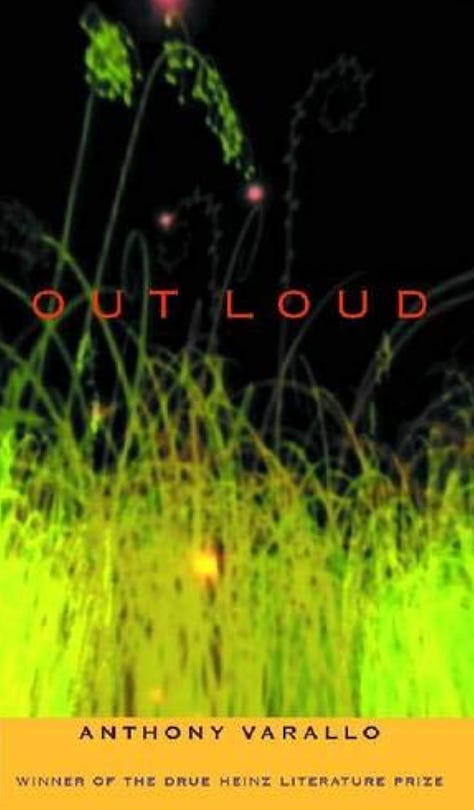
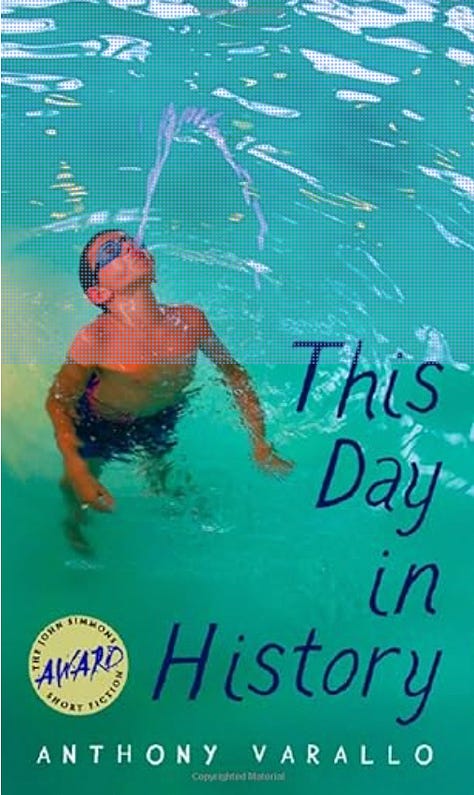
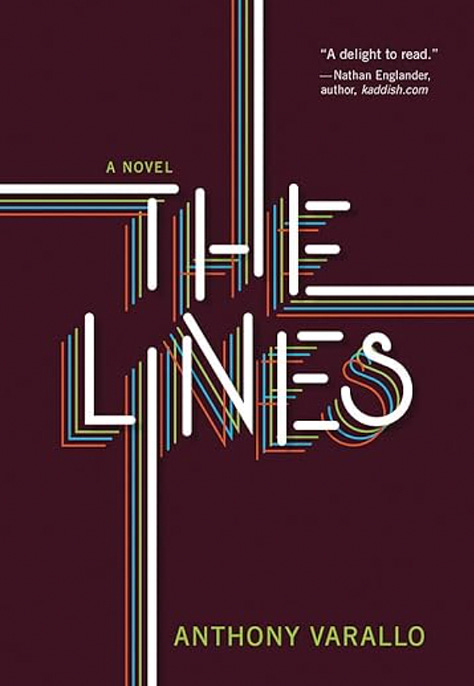
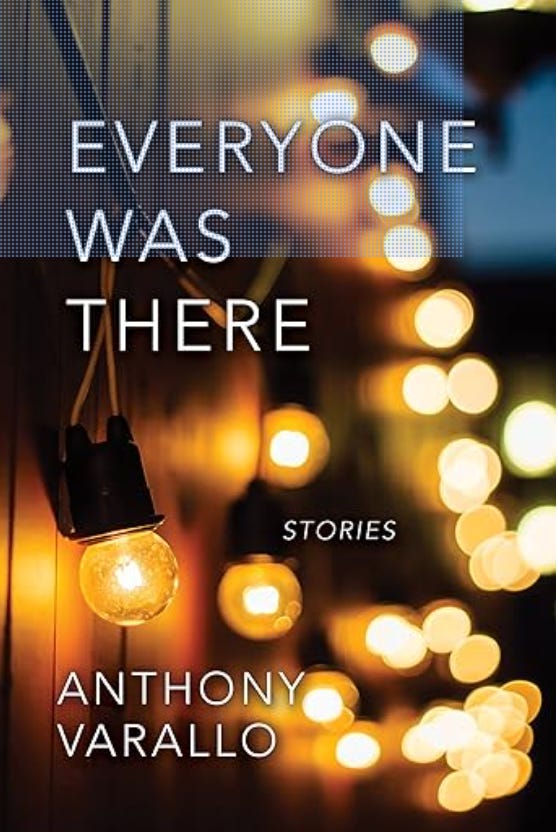
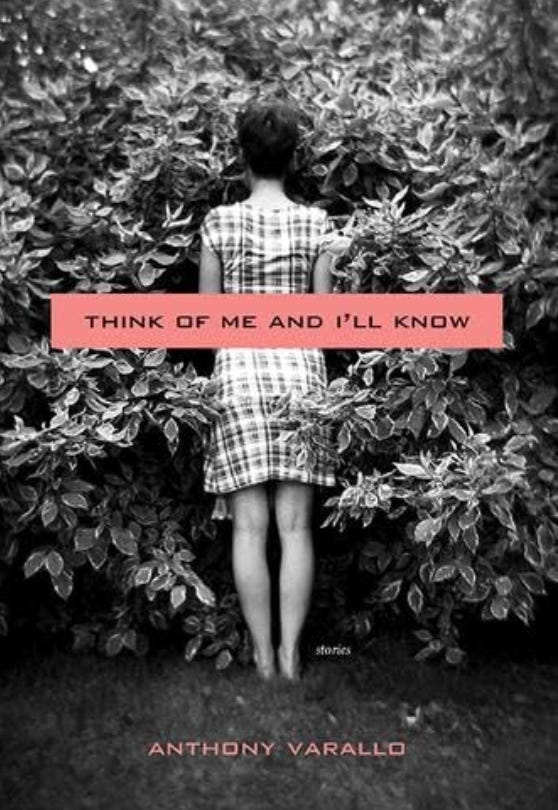
CS: Many of your stories focus on the experience of being the adult child of aging parents, as well as childhood and formative experiences in elementary and middle school. There’s so much wit, but pathos too (the stories “Custodian” and “Nicotine,” for example, are also two of the funniest and saddest).
What often sparks you to start writing a story? Is it that you see someone who reminds you of someone else, or are you drawing on events in your own past? Maybe both?
AV: It's hard to say what starts a story, since each story feels a little different from the next, but yes, many of my stories begin with a backwards glance. I think that’s one of my (many) limitations as a writer: I need to have some grounding in the thing I’m writing about, not to the point that I had to literally experience it, but that I’ve experienced something emotionally close to what the characters in the story experience. I’m really bad at making something up that’s totally outside what I’ve ever lived and known and just winging it, alas.
“Custodian” started with a memory of my elementary school custodian (yes, Mr. Fulton) standing in a flooded parking lot and telling us to go home, school was cancelled that day. And that’s all I remember. Nothing else.
To try to find the story there, to build it up from basically nothing, I gave myself a challenge: I will use the name “Mr. Fulton” in every sentence. I sort of liked the challenge of using repetition, which we typically try to avoid in our stories, to shape the story into a kind of character portrait.
“Nicotine” also came from a childhood memory, where my sister and I may or may not have hidden our babysitter’s cigarettes to “help” her quit smoking (!) I don’t really remember if we hid them or gave them back a moment later. The only thing I remember is the way the babysitter looked at us as she tried to convince us that we should return the cigarettes to her, almost like she was at the end of her rope, this close to screaming at us. And that’s all I remember. The rest is me thinking back on that episode now, as an adult who now has plenty of sympathy for this babysitter who must deal with these moralizing children who probably have no idea what her life is really like.
CS: Most of these stories are flash fiction—you’ve published some flash stories in other collections too, but your earlier books include more traditional length short stories. What has spurred you to write more flash in recent years?
AV: This might be the worst answer ever given in the history of interviews, but if I’m being honest, I have to say: the Covid pandemic. Most of the flash stories from What Did You Do Today? were written in 2020 and 2021 when the pandemic was at its worst and I was teaching remotely, like all of my colleagues, and stuck at home for months at a time. (My favorite pandemic anecdote is that I filled my car with gas a week or two before Christmas 2020, and that tank of gas lasted until Easter 2021. And I drive a Jeep, not a Prius.)
During that strange time, I felt like I couldn’t concentrate on writing long-form fiction.
There was something that sustained me about flash, something about the pleasure of writing a story in a few sittings and then moving on to the next. I don’t know how that connects to the pandemic, really which was a terrible and tragic experience, of course. All I know is that I needed to write as much as I could during that time, and flash gave me a way to always be working on the next thing, on to my next fascination, to my next-but-soon-to-pass obsession.
Anthony Varallo is the author of a novel, The Lines, as well as four previous short story collections: This Day in History, winner of the John Simmons Short Fiction Award; Out Loud, winner of the Drue Heinz Literature Prize; Think of Me and I’ll Know; and Everyone Was There, winner of the Elixir Press Fiction Prize. He is a professor of English at the College of Charleston, where he teaches in the MFA Program in Creative Writing. Find him online at anthonyvarallo.com.






Just asked the LA Public Library to please order this. We have his previous titles so I'm not sure why the winner of the Katherine Anne Porter Prize in Short Fiction wasn't on our November order sheet (although I could very cynically hazard a guess). I hope they buy a copy -- I could use more humor in my life.
Recently, I’ve been rolling over in the morning and opening a short story to read instead of ingesting more bad news from the robot eating my brain. Very excited to add Anthony’s book to my collection! Thank you.